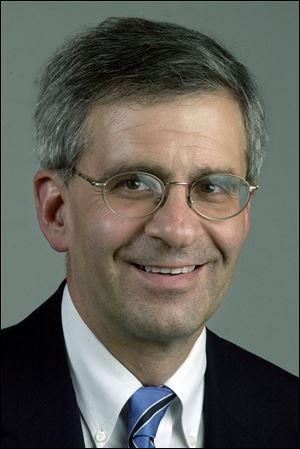
COMMENTARY
Why tax reform is needed, and why it is doomed
3/2/2014
Shribman
Here are many reasons that the tax overhaul plan that House Ways and Means chairman Dave Camp of Michigan released last week — or, indeed, any bill labeled “tax reform” — will not pass this year:
It is an election year, and lawmakers don’t take risks in election years. The bill was crafted by a Republican, so the Democrats in the Senate will never give it a fair shot.
At its heart is “dynamic scoring,” an arcane accounting practice that assumes lower taxes spur higher revenues, a notion Democrats aren’t about to accept. The economic recovery, while not robust, isn’t weak enough to prompt substantial changes in the tax code.
Wait, there’s more: Mr. Camp’s involvement in the movement to stop new Internal Revenue Service regulations that govern social-welfare groups alienates some lawmakers and provides an excuse to spurn his tax proposal. Some Republicans won’t support Mr. Camp’s drive even if they agree with his precepts, because they don’t want to be identified with a proposal that has few prospects in the Senate.
Every fat-cat special interest group in Washington — watch especially for the Realtors, who don’t want to undermine the much-overrated home mortgage deduction — will mobilize against it.
The proposal doesn’t have a big-name co-sponsor. President Obama and the GOP will never agree on a major initiative. The political conditions in 2014 don’t begin to replicate the conditions in 1985-1986 that produced the last tax overhaul.
Here is one reason that the Camp proposal, or another tax overhaul, should pass this year: The United States tax code is an unredeemable mess.
Into this mess waded Mr. Camp, who had hoped the bipartisan super-committee on budget issues might have tackled tax overhaul four years ago. He’s devoutly conservative — he once rated a “0” score from the liberal Americans for Democratic Action, a badge of honor on the right. He’s also devoutly committed to his quixotic mission.
Mr. Camp defeated his Democratic rival for his House seat by a margin of nearly two-to-one in 2012 — far bigger than former Gov. Mitt Romney’s margin over Mr. Obama in the same district. His winning percentage in a dozen races in his district in central Michigan has never dipped below 61 percent.
Almost everyone on both sides of the aisle comments on how mild-mannered he is. Except on one issue: the tax code. His reprise line is that the tax code is 10 times the size of the Bible without the good news. The proposal he unveiled last week would reduce the top income tax rate from 39.6 percent to 25 percent for all but some of the top 1 percent of filers, who would be subject to a 10 percent surcharge on some income.
Of course it was declared dead on arrival by all the coroners on Capitol Hill, who are better at performing autopsies than playing midwife to successful births.
This is the environment in which the notion of tax overhaul is discussed, or dissed: Almost six in 10 Americans give below-average grades to Washington, according to a poll the Marist Institute for Public Opinion conducted last month.
Tax overhaul may not be the public’s highest priority, but the prospects for Mr. Camp’s initiative help explain why the public demands an overhaul of the Washington political culture.
David Shribman is executive editor of the Pittsburgh Post-Gazette.
Contact him at: dshribman@post-gazette.com